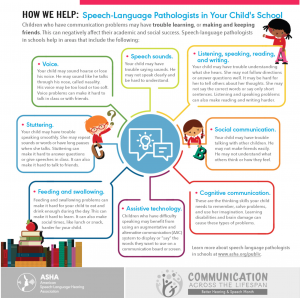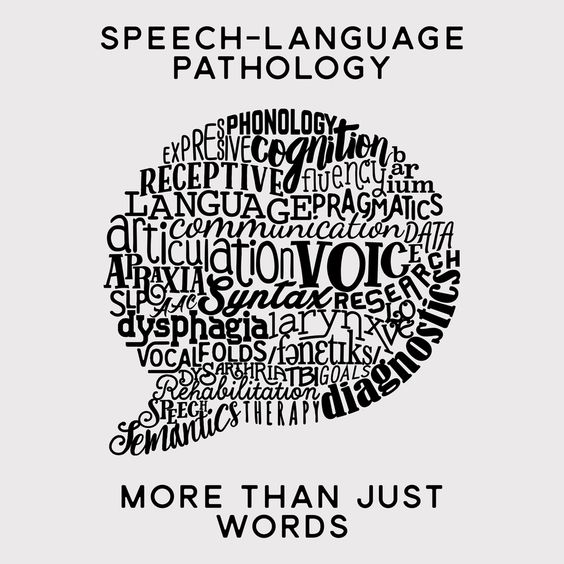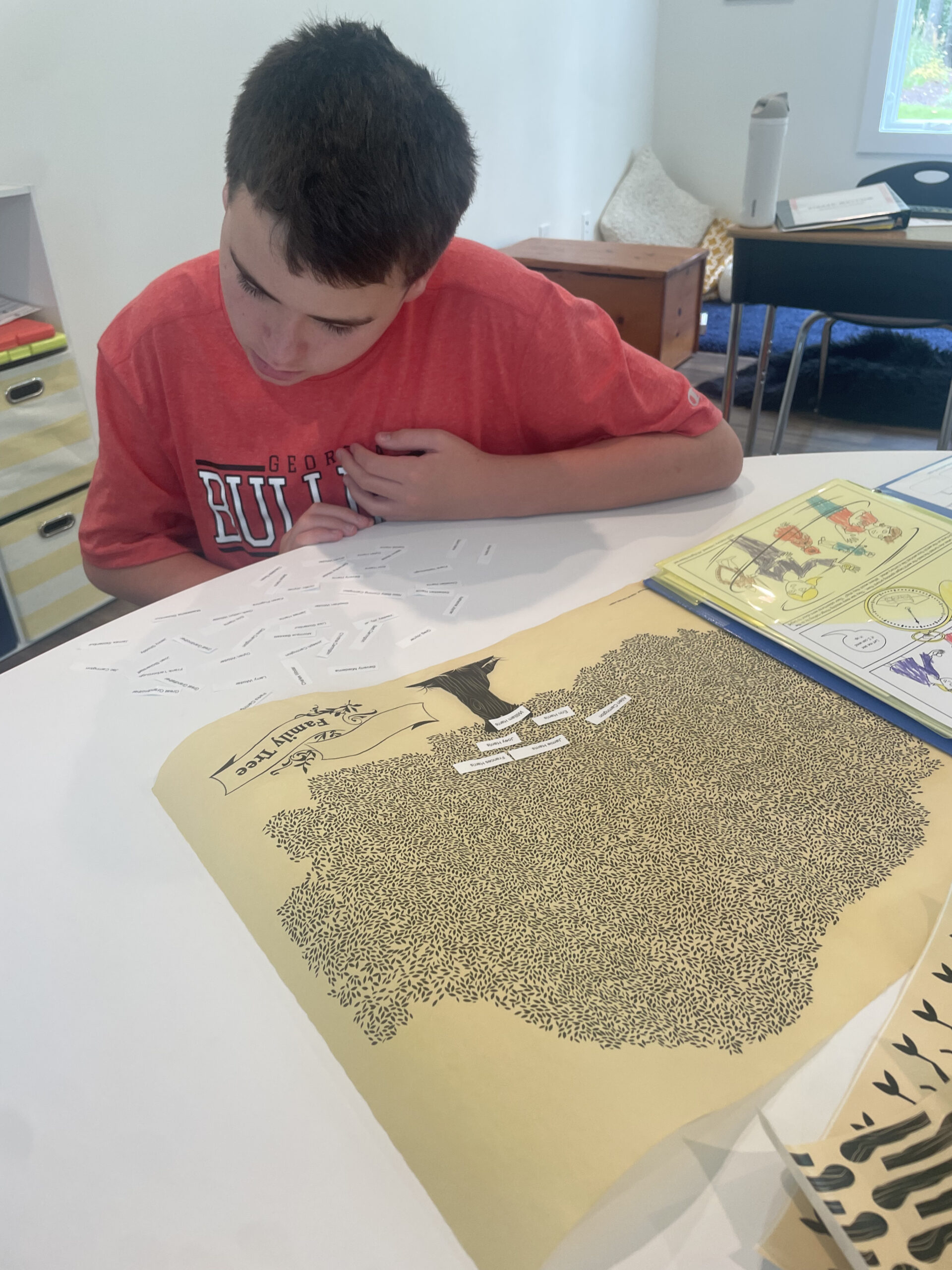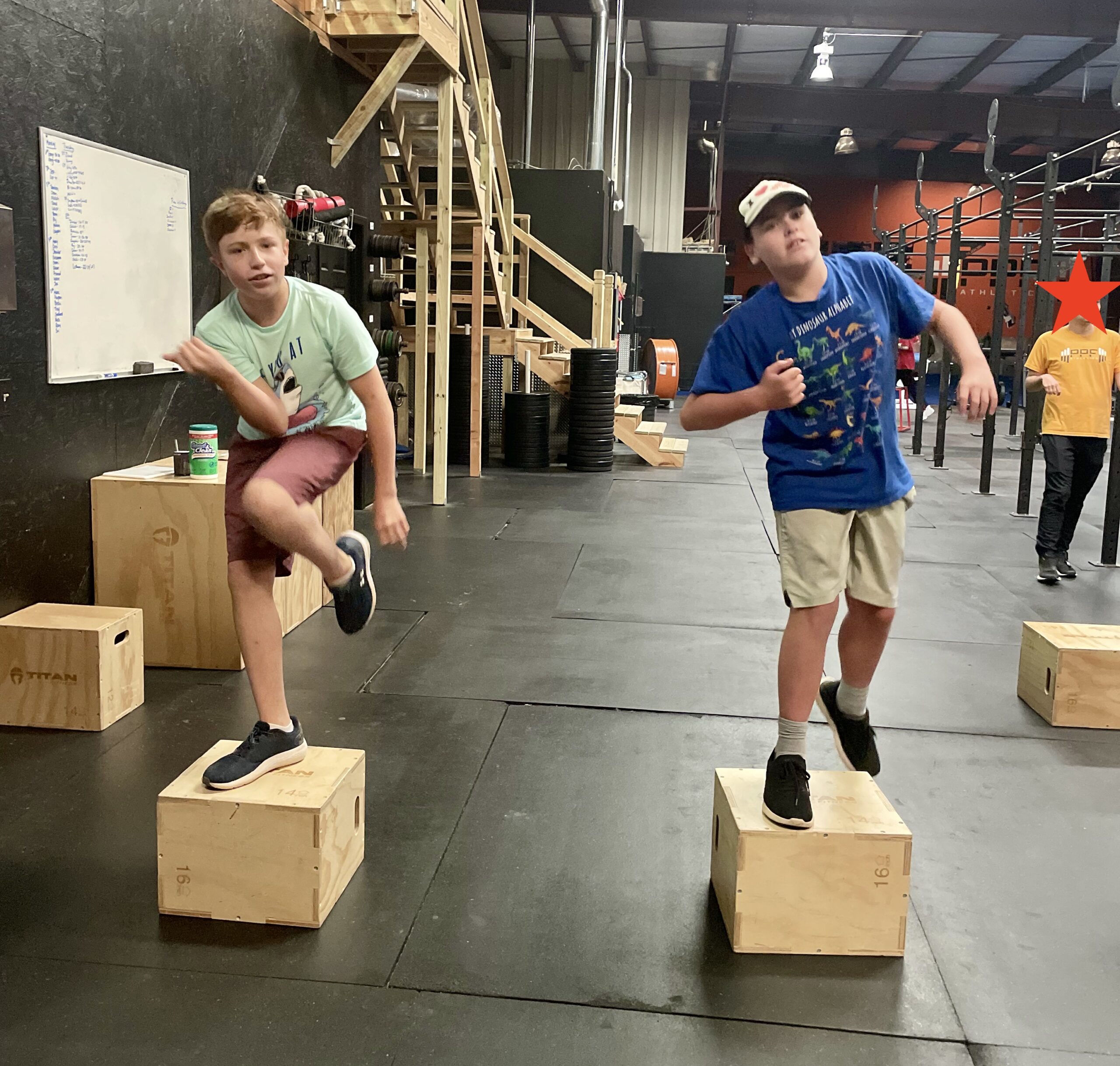
At Cornerstone Prep School the on staff speech-language pathologist works with students in both individual sessions as well as whole group activities. Pragmatic language, social-emotional skills, receptive language, expressive language, articulation, oral motor/feeding, and executive functioning are some of the many areas addressed by the speech-language pathologist. Below we have expanded a bit more on what these areas entail. Cornerstone takes a collaborative approach to learning. Both Teachers and therapists are continuously working together throughout the day to reinforce and carryover skills across domains.
Receptive Language: understanding of language both spoken and written; including semantics/vocabulary, grammar, and phonology.
Expressive Language: use of sounds, words, sentences, gestures and writing to convey wants, needs, thoughts and ideas to others.
Articulation: how we make speech sounds using the mouth, lips and tongue.
Oral motor skills: the use and function of the lips, tongue, jaw, teeth, and the hard and soft palates. The movement and coordination of these structures are very important in speech production, safe swallowing, and consuming various food textures.
Pragmatic Language: social communication skills we use in our daily interactions with others. They include what we say, how we say it, our body language and whether it is appropriate for the given situation.
Social/Emotional skills: Recognizing, expressing and responding to emotions/feelings in yourself and others.
Executive functioning: a set of mental skills that include working memory, flexible thinking, and self-control. We use these skills every day to learn, work, and manage daily life. Trouble with executive function can make it hard to focus, follow directions, and handle emotions, among other things.
To learn more about what Speech Language Pathologists do head over to the American Speech Language Hearing Association’s presentation for parents; Speech Language Pathologists; Who We Are and What We Do.




